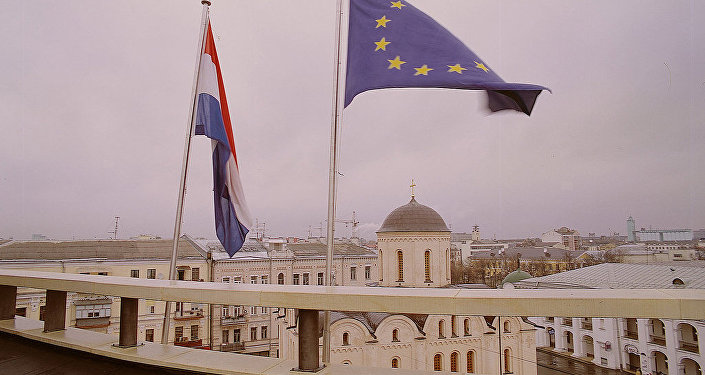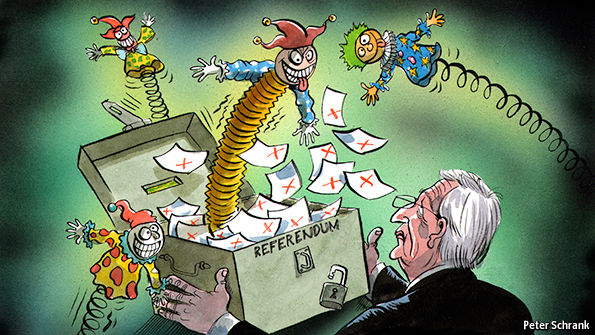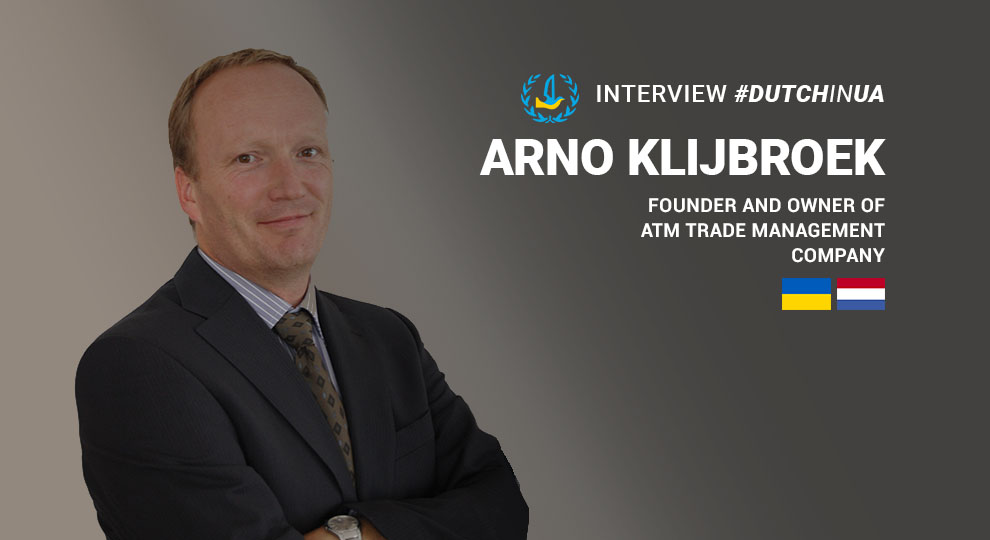It definitely was not the most pleasant sight, watching how MP Oleh Barna grabbed Prime-Minister Yatseniuk by the crotch and tried to carry him off the stage. What followed was a fistfight among parliamentarians, and before the day was over the images were on all social media and news programs across the globe. If Barna’s unorthodox behavior was to rid Ukraine’s politics of an allegedly corrupt Prime Minister, as a step towards clean “European-style” political life, the effect might prove to be rather counter-productive. Russian state-propaganda bathed in this free-of-charge anti-Ukrainian footage, while also in other countries pro-Russian and anti-European groups made use of it to press their views to a largely ignorant audience.
Ignorance about Ukraine and the predicament in which the country finds itself has become a major factor in Western European political life. Being in the news at least on a weekly if not daily basis over the past two years, Ukraine has become a permanent item during political discussions, yet often the item “Ukraine” has very little to do with the country itself. “Ukraine” has become the front line between NATO and Russia’s aggressive imperialist policies. “Ukraine” has become the focal point for discussions about the right of people to dispose corrupt and dysfunctional rulers, the inviolability of state borders and the security system on the European continent. “Ukraine” has also become the theme that dominates discussions about the future size of the European Union. And, last but not least, “Ukraine” has become the pet theme of those who follow an anti-globalist and anti-EU political course and want to go back to full national sovereignty and curbing the influence of supra-national structures.
All of the above do not care about the reasons why Barna did what he did. They do not know that the man has a track record of not being able to contain his emotions and has been involved before in political fistfights. They also don’t know that he was a Maidan activist who was seriously wounded on February 18, 2014, at Maidan, which probably didn’t help to make him “softer”. They also don’t care that he probably couldn’t contain himself when watching the Prime Minister wash his hands in innocence while remembering the massive loss of life at Maidan. They don’t care, because actually they don’t care about Ukraine; they care about themselves, and their own political careers.
Sure, fistfights in parliament are not a pretty sight, but the Verkhovna Rada is not the only place where we can watch such events unfolding. On internet you can even find a special site with videos of similar fights in countries ranging from Afghanistan to South Africa, from India to Türkiye, from Italy to Japan, hey there is even footage from super-decent Canada. I don’t like fighting, neither in nor outside parliament, but what is far more of concern to me is when a white-haired populist parliamentarian in The Netherlands claims during a session that it is a “fake-Parliament”, and that he is not kicked out by the Speaker and that that just a few fellow parliamentarians react. That is for me a situation when all alarm bells go off; not when Barna cannot keep his hands to himself. If this Dutch PM thinks it is a fake Parliament then he should move his ass, I would say. And so should have said his follow Parliamentarians – but they did not.
With discussing The Netherlands, the country from which I originally come, I have to admit that my allegiance to the country has been battered already for more than a decade, and particularly since the Maidan events. I think the turning point was 2003, when a populist politician, Pim Fortuyn, was murdered by a radical Dutch environmental activist. This event fundamentally changed the political climate in the country. Instead of expressing their disgust over the political assassination yet at the same time making clear that Fortuyn’s ideas were not theirs, political parties tumbled over each other to convince the electorate that they also had “a little bit of Fortuyn” – or a big bit for that matter. The result was a political soup, which was so hypocritical that people stopped believing in the traditional political parties altogether. The result has been a rise and fall of one populist political party after the other, until the “white-haired magician” Geert Wilders came to stage, who combines a superb political nose with a propagandistic culture rather reminiscent to that of Joseph Goebbels. Yes, I make that comparison on purpose, because for me Wilders is nothing less than a modern face of neo-fascism.
He is not the only right-wing political maverick in Europe. He has allies all over the place, including his friend Marianne Le Pen in France and the Jobbik party in Hungary. Yet the scary part of this all is that they all seem to very much like Vladimir Vladimirovich in Moscow, and so we see a very unhealthy alliance between Putin and right-wing populists within the European Union. And I don’t think this is very much a coincidence.
In The Netherlands, the mood vis-à-vis Maidan and its aftermath was at best ignorant, at worst pro-Russian. Part of the blame lies with the new generation of Dutch correspondents, who ignorant of the Soviet past were sitting in Moscow commenting on events in Ukraine. This changed with the downing of the Malaysian airliner, and for a while The Netherlands seemed to have a genuine and positive interest in what was happening in the country. Also some of the correspondents had a crash-course in “post-Sovietism”, which helped the reporting a lot in reaching higher quality levels. Yet the situation remained too complex for ordinary Dutch citizens, who worry about their livelihood, about the influx of refugees, the alleged “Islamization of Europe” and who are as a result so vulnerable and easy to influence. And thus “Ukraine” became again the focal point of the discussion about keeping The Netherlands “Dutch”, about curbing the influence of the European Union and curbing the influx of foreigners “who steal our jobs” or “rape our women and girls”. A discussion which had, in fact, nothing to do with Ukraine itself.
For me it is very sad that it is particularly The Netherlands that will now organize a referendum on the Association Agreement between the European Union and Ukraine. A referendum that was brought about by a group of citizens who know nothing about the complexities of a post-totalitarian society, about the hopes of the young post-Soviet generations, the driving forces of Maidan and the impressive struggle these young people wage against an all-pervasive corrupt nomenklatura. Actually, the referendum-organizers know nothing about Ukraine itself, their world image is determined by their fears of losing what has always been certain, of losing the benefits of a welfare state no longer possible to maintain, a fear of the challenges of a global economy where everything is different and an intelligent Ukrainian (…Bulgarian, Lithuanian, Indian, Nepalese…) has more chances and opportunities than a less-intelligent citizen of one of the world’s oldest democracies. Everything that was holy has become unstable; everything certain unsure.
The task of responsible politicians is to make complex political issues understandable for their constituencies. Politicians should provide a moral beacon; they should prevent people from sliding down into total egocentrism and “politics of the street”. But what to do when politicians themselves have degraded themselves to that level? What if they themselves don’t have that moral stature, and they themselves have no eye for the complexities of the political realities and the historical contexts in which we operate?
What angers me is, that these self-centered politicians ride the waves of popular support, without thinking about the consequences and without thinking about the new generations of Ukraine who have put their hopes and futures with the European home. To them this behavior is at best an affront, at worse a form of treason. Definitely, it goes fully against the spirit of the founding fathers of the European Union, a political constellation that since the Second World War was so crucial for the current wealth of countries like The Netherlands.
And then again, it might be also a good lesson; a lesson in political reality, in understanding that the European Union is not only a lovely place to be. It is also home to 450 million egocentric European citizens who mostly think about themselves, and about others when it is in their own personal interest. It reminds me of the posters that appeared at Maidan in December 2013, which read: “Dear European Union and USA: we don’t need your moral support. Act, or fuck off.” It very well voiced the disappointment of the demonstrators, but it also showed rule number one in post-Soviet reality: nobody will help, if you want change you have to do it yourself.
And probably that is equally true today: Ukraine, you will have to do it yourself. And I think you will. Actually, I am sure of that, and you have my support.





